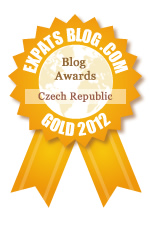Natalie, Miran and I are planning a little Easter road trip in the Alps. Nat and I will catch a train from Brno to Graz where Miran will pick us up and drive us to Innsbruck. From there it's on to Liechtenstein and Switzerland before heading back to Austria. So here's a bit about Austria.
 The Republic of Austria is a landlocked country in Central Europe. It's a little smaller than Maine. Austria is known for the Alps – think The Sound of Music, skiing, classical music, the Waltz and rich pastries. Austria has a population of ~8.5 million people and roughly 25% live in the capital city – Vienna. Most Americans think of Austria as being part of Western Europe since it was west of the Iron Curtain. However, Vienna is actually east of Prague.
The Republic of Austria is a landlocked country in Central Europe. It's a little smaller than Maine. Austria is known for the Alps – think The Sound of Music, skiing, classical music, the Waltz and rich pastries. Austria has a population of ~8.5 million people and roughly 25% live in the capital city – Vienna. Most Americans think of Austria as being part of Western Europe since it was west of the Iron Curtain. However, Vienna is actually east of Prague.
 In the 17th and 18th centuries, Austria was one of Europe's super powers. In 1867, it became the Austro-Hungarian Empire. After its defeat at the end of WWI in 1918, it became a republic. In 1938, Austria was annexed by Nazi Germany and became part of the Third Reich until the end of WWII. In 1955, the Allied occupation ended and Austria became a republic with a policy of permanent neutrality.
In the 17th and 18th centuries, Austria was one of Europe's super powers. In 1867, it became the Austro-Hungarian Empire. After its defeat at the end of WWI in 1918, it became a republic. In 1938, Austria was annexed by Nazi Germany and became part of the Third Reich until the end of WWII. In 1955, the Allied occupation ended and Austria became a republic with a policy of permanent neutrality.
Today, Austria is one of the richest countries in the world. It is part of the EU and Schengen, as well as, a Eurozone member. But it is not a part of NATO.
The official language is German but there is a definite Austrian accent. The border between the Czech Republic and Austria is only about 60 km (37 miles) away. Due to Austria's close proximity I would expect more Czechs to speak German. However, many elderly people here in Brno can speak some German. Many times I've asked directions from someone older, in Czech, but they responded back to me in German.
 The Republic of Austria is a landlocked country in Central Europe. It's a little smaller than Maine. Austria is known for the Alps – think The Sound of Music, skiing, classical music, the Waltz and rich pastries. Austria has a population of ~8.5 million people and roughly 25% live in the capital city – Vienna. Most Americans think of Austria as being part of Western Europe since it was west of the Iron Curtain. However, Vienna is actually east of Prague.
The Republic of Austria is a landlocked country in Central Europe. It's a little smaller than Maine. Austria is known for the Alps – think The Sound of Music, skiing, classical music, the Waltz and rich pastries. Austria has a population of ~8.5 million people and roughly 25% live in the capital city – Vienna. Most Americans think of Austria as being part of Western Europe since it was west of the Iron Curtain. However, Vienna is actually east of Prague. In the 17th and 18th centuries, Austria was one of Europe's super powers. In 1867, it became the Austro-Hungarian Empire. After its defeat at the end of WWI in 1918, it became a republic. In 1938, Austria was annexed by Nazi Germany and became part of the Third Reich until the end of WWII. In 1955, the Allied occupation ended and Austria became a republic with a policy of permanent neutrality.
In the 17th and 18th centuries, Austria was one of Europe's super powers. In 1867, it became the Austro-Hungarian Empire. After its defeat at the end of WWI in 1918, it became a republic. In 1938, Austria was annexed by Nazi Germany and became part of the Third Reich until the end of WWII. In 1955, the Allied occupation ended and Austria became a republic with a policy of permanent neutrality.Today, Austria is one of the richest countries in the world. It is part of the EU and Schengen, as well as, a Eurozone member. But it is not a part of NATO.
 |
| The Austrian €1 coin with a picture of Mozart |
Austria and the Czech Republic do occasionally have their share of disagreements. For example, Austria is a very "green" country and doesn't like the Czech's Temelín nuclear power plant being 50 km from the Austrian border. Austria even threatened to block the ČR from joining the EU if the facility wasn't decommissioned. The treat didn't work because the Czechs joined the European Union in 2004 and Temelín is still running.






























Christopher - many Czech people will thank you for your geographical observation within this post. Czechs regard themselves as living in 'Central Europe', NOT 'Eastern Europe' & will always point out how much further west Prague is compared to Vienna.
ReplyDelete